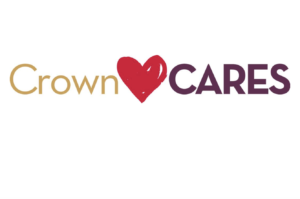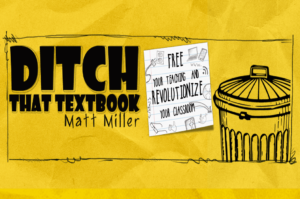The End of the Book
Open it.
Go ahead, it won’t bite.
Well…maybe a little.
More a nip, like. A tingle.
It’s pleasurable, really.
You see, it keeps on opening.
You may fall in.
Sure, it’s hard to get started;
remember learning to use
knife and fork? Dig in:
you’ll never reach bottom.
It’s not like it’s the end of the world-
just the world as you think
you know it.
Rita Dove
In 1994 Rita Dove was the Poet Laureate of the United States, Tim Berners-Lee formed The World Wide Web Consortium at MIT, and I was a new public school superintendent. Rita’s poem celebrated book learning; Tim’s consortium signaled the beginning of the end of books.
The Book captures the wonder of learning light bulbs turning on as letters become words and words become stories and stories become meaning. But it represents artifact thinking, an inherent guardedness to language and learning. Dove describes steps taken slowly with trepidation. Two decades after The Book was written, reading, and now learning, is always on and is always open to anyone. It has moved from books written by gatekeepers to information that is passes from one to many and many to one.
The Book, a fetish object, is romanticized because the conditions under which it was created led to romanticism. Her book is the beginning of a relationship with a mysterious object that as self-discovery deepens and takes on the patina of something sacred. An author drafted it, an editor refined it, and it became a valuable thing. She points to the reading of the book, as a journey of self-discovery, which in her erotically tinged language suggests is a very intimate path. The Internet process is equally intimate, personal, and even narcissistic, but it is transparent, open. People know where you have been. They know the others who know them. Authors are familiar with their retractors and they are at times reacting if not responding to them.
Rita writes as a gatekeeper, someone who has “been there,” a guide leading the blind, a journey that from afar seems scary. Today’s students don’t learn this way. They jump right in, eager for information and experience, unafraid. The Internet empowers them to be stewards and interpreters of information. In a world where Perez Hilton is an expert, the medium is the message and the platform is the legitimizer.
Learning has changed and the role of the learner has changed. As the book as we know falls into disuse, our young people have moved on. Digital natives that grew up online know that with a few keystrokes on a message board about a micro-engine for a robot or a remote control for a plane they will have more than enough to get started. Put a game in front of a student and they’ll figure out the rule set—no instructions required.
Schools are temples of ritual where knowledge is passed from elder to student. More than 15 years after the World Wide Web began transforming every other sector, most of our schools remain grounded in the semantic conditioning that Dove plays with in The Book. She uses the book as a relic, a holy object. It is romantic to her and her reader, because all wisdom was held in the book. But that is changing.
Our students live a paradox. They live most of their lives in a world that allows them access to people, media, and information, but many attend schools where they are required to power down—electronically and physically—and are subjected to a forced feeding of one way information regurgitated on a bubble sheet test. Outside school, you don’t need a grade to prove you passed; you get instant feedback in the form of a game score or community response. Perhaps the great philosopher Shel Silverstein issued the ultimate Invitation for getting smart in this new age:
If you are a dreamer, come in.
If you are a dreamer, a wisher, a liar,
A hope-er, a pray-er, a magic bean buyer . . .
If you’re a pretender, come sit by my fire,
For we have some flax golden tales to spin.
Come in!
Come in!
Now that information is widely created, shared, and aggregated into platforms, communities gather around information the way they used to around a book, only the circles are wider now, not as elite, and instead of ritualistic, the sharing of knowledge is driven by a need to know. Communities trapped by tradition and poverty have a new opportunity to get smart and gain equity. The revolution will not be easy or quick. Over the last 15 years, America layered 10 million computers on top of school as we have always done it with little effect. But this time it is different. Despite our efforts to control schools locally, to force students to power down, and limit learning online by draw boundaries on the Internet, there is no local anymore; local has become global and global concerns are at the doorstep of every school. Global concerns invite students, “Come in!”









Honky donk
What you are suggesting here is profoundly different. It means that knowledge is distributed, not channeled into one feeding tube. How will teachers react to this?
Replies
Tom Vander Ark
Some teachers, administrators, school board members don't like it. Need to find ways to leverage the ones that do.